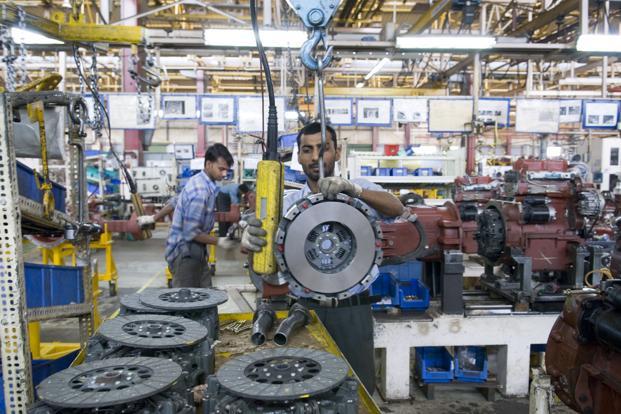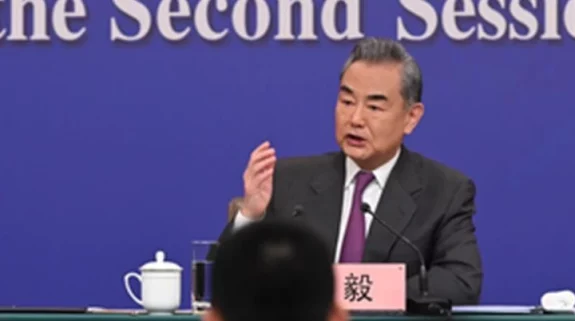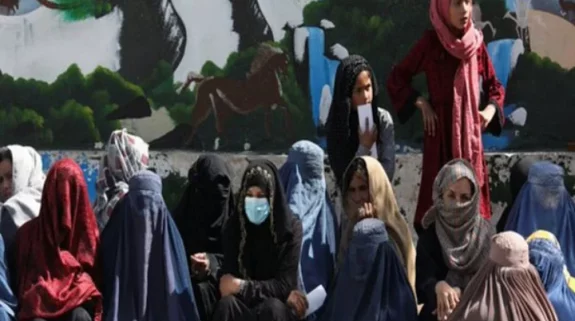S&P Global manufacturing PMI India’s manufacturing sector showed a healthy expansion in March with the S&P Global India manufacturing Purchasing Managers Index (PMI) rising to a three-month high of 56.4 from 55.3 in the previous month, beating market expectations of 55.0. But more importantly, India’s PMI ranking on the global chart was the second highest – the first being Saudi Arabia with a score of 58.7. Myanmar and Hungary have grabbed the third and the fourth slots with scores of 55.5 and 55.3 respectively.
“Underlying demand for Indian goods remained strong in March…Hence, production continued to expand at a robust clip and firms stepped up their stock-building efforts,” Pollyanna De Lima, economics associate director at S&P Global Market Intelligence, said in a statement.
India is now aggressively trying to position itself as a global manufacturing hub.
During the same month, the Caixin/S&P Global manufacturing PMI for China stood at 50.0. This is a drop from February’s reading of 51.6. In February, China’s manufacturing PMI expanded after six months of being in red. A reading lower than 50 reflects contraction.
PMI reading is considered an important data point indicating the existing trends of economic activities especially in relation to the manufacturing sector, capturing upstream and downstream activities.
The S&P Global Eurozone manufacturing PMI was 47.3 in March, down from 48.5 in February to a four-month low. The UK’s PMI too fell from 49.3 to 47.9.
Eurozone factory order books continued to shrink at the end of the first quarter, but a survey-record shortening in suppliers’ delivery times boosted the supply of critical raw materials and components, thereby supporting greater production levels, Fibre2Fashion, a portal focused on the textile sector, noted.
Meanwhile India’s goods and services tax (GST) collection—a consumption based tax for March increased by 13 per cent touching Rs 1.60 lakh crore.
Last month, a report by banking and financial service major ING said that the Indian economy is expected to continue growing with the ease of inflationary pressures, pushing real spending powers. The report also noted that India’s economy, despite the fourth-quarter slowdown in consumer spending, “this component of national expenditure” is likely to do much of the heavy lifting for growth in 2023.
It added that private investments are expected to remain a strong source of economic growth, aided by the additional capital spending measures outlined in the latest Union budget.
Also read: Centre sanctions Rs 500 crore for new Electronics Manufacturing Cluster near Pune




















